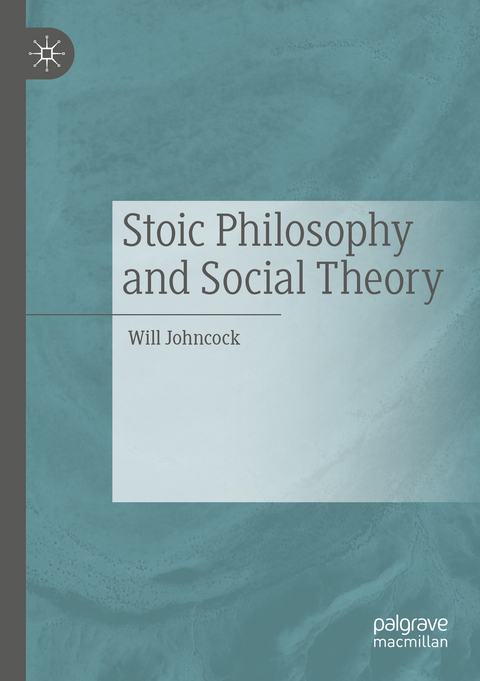
Stoic Philosophy and Social Theory
Springer International Publishing (Verlag)
978-3-030-43155-6 (ISBN)
This book puts recently re-popularized ancient Stoic philosophy in discussion with modern social theory and sociology to consider the relationship between an individual and their environment. Thirteen comparative pairings including Epictetus and Émile Durkheim, Zeno and Pierre Bourdieu, and Marcus Aurelius and George Herbert Mead explore how to position individualism within our socialized existence. Will Johncock believes that by integrating modern perspectives with ancient Stoic philosophies we can question how internally separate from our social environment we ever are. This tandem analysis identifies new orientations for established ideas in Stoicism and social theory about the mind, being present, self-preservation, knowledge, travel, climate change, the body, kinship, gender, education, and emotions.
lt;p>
Will Johncock researches social theory, continental philosophy, and Stoic philosophy, with a particular interest in themes concerning time. He is the author of Naturally Late: Synchronization in Socially Constructed Times (2019) which studies how social science and philosophy differentiate natural time from human time structures. He has lectured at UNSW Sydney.
1. Introduction.- Essential Versus External Social Being.- Part I: Subjectivity.- 2. Who Controls Your Thoughts? Epictetus and Émile Durkheim on Mental Structure.- 3. When Are You Present? Chrysippus and Henri Bergson on Continuous Time.- 4. Why Do You Care About Yourself? The Early Stoics and Herbert Spencer on Self-Preservation.- Part II: Knowledges and Epistemologies.- 5. Do Preconceptions Determine New Knowledge? Epictetus and Max Weber on Truth.- 6. Do People Know Why They Travel? Seneca and Anthony Giddens on Ignorance.- Part III: Physical Conditions.- 7. Is Climate Change Natural? Marcus Aurelius and Barbara Adam on Death.- 8. What Causes Your Behaviors? Zeno and Pierre Bourdieu on the Body.- Part IV: Collective Ethics.- 9. How Do We Regulate Our Affection for Others? Hierocles and Claude Lévi-Strauss on Kinship Circles.- 10. Can Education Be Egalitarian? Musonius Rufus and Julia Kristeva on Gendered Labor.- 11. Is It Natural to Be Social? Marcus Aurelius and George Herbert Mead on Socialization.- Part V: Emotions.- 12. Is Reason External to Passion? Posidonius, Ann Game, and Andrew Metcalfe on Self-Division.- 13. Who Benefits from the Management of Feelings? Epictetus and Arlie Hochschild on Emotional Labor.- 14. How Individual Is Happiness? Chrysippus and Harriet Martineau on the Universal End.
| Erscheinungsdatum | 30.05.2021 |
|---|---|
| Zusatzinfo | XI, 352 p. |
| Verlagsort | Cham |
| Sprache | englisch |
| Maße | 148 x 210 mm |
| Gewicht | 472 g |
| Themenwelt | Geisteswissenschaften ► Philosophie ► Allgemeines / Lexika |
| Geisteswissenschaften ► Psychologie ► Psychoanalyse / Tiefenpsychologie | |
| Sozialwissenschaften ► Soziologie | |
| Schlagworte | Barbara Adam • Durkheim • Henri Bergson • Herbert Spencer • Hierocles • Julia Kristeva • Levi-Strauss • Marcus Aurelius • Musonius Rufus • Pierre Bourdieu • zeno of citium |
| ISBN-10 | 3-030-43155-X / 303043155X |
| ISBN-13 | 978-3-030-43155-6 / 9783030431556 |
| Zustand | Neuware |
| Haben Sie eine Frage zum Produkt? |
aus dem Bereich


